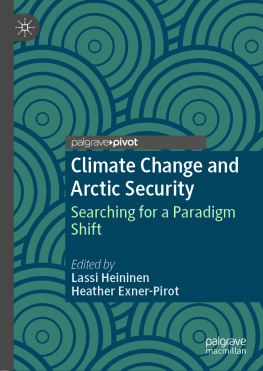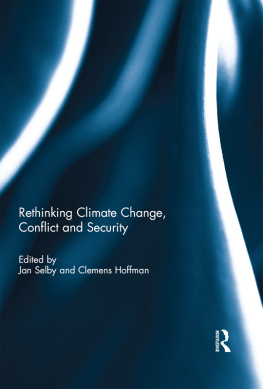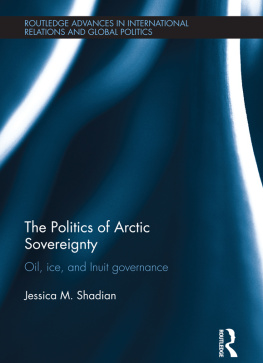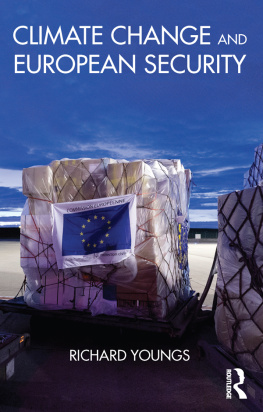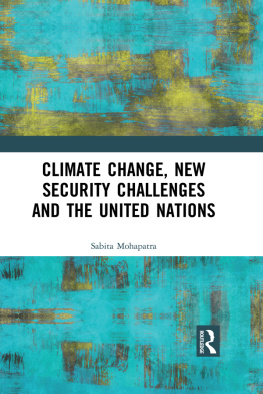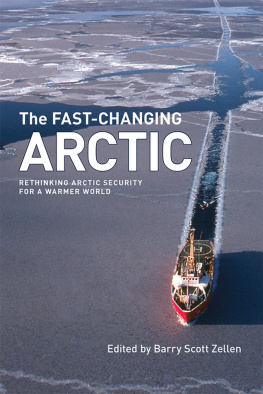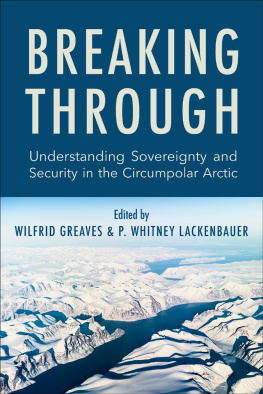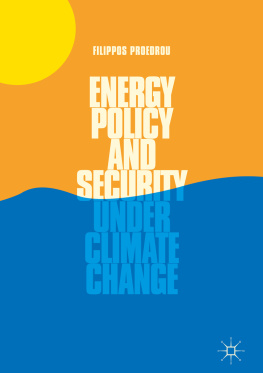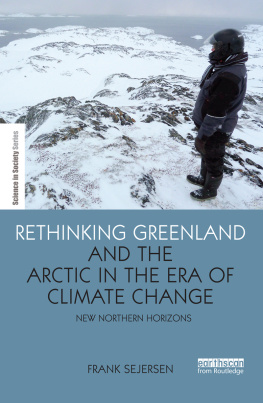Contents
Landmarks
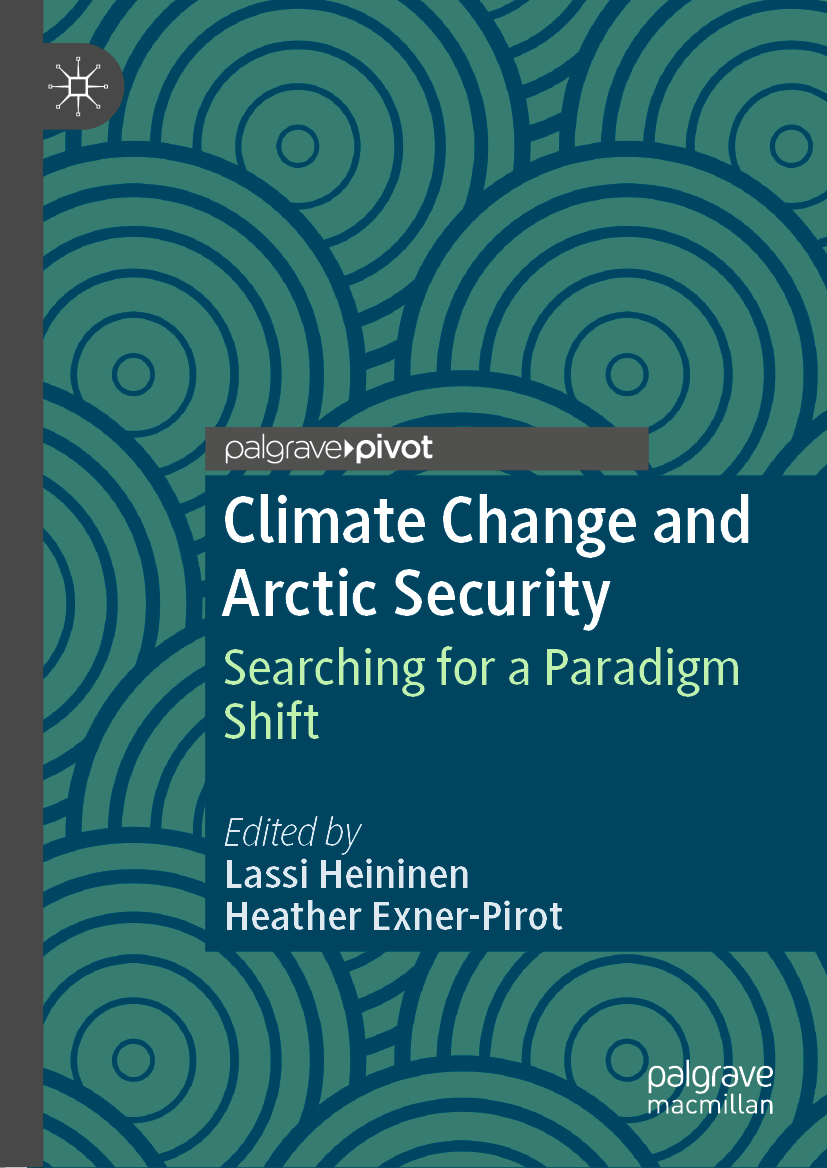
Editors
Lassi Heininen and Heather Exner-Pirot
Climate Change and Arctic Security Searching for a Paradigm Shift
Editors
Lassi Heininen
INAR at University of Helsinki, Helsinki, Finland
Heather Exner-Pirot
Observatoire de la politique et la scurit de lArctique at CIRRICQ, Quebec, Canada
ISBN 978-3-030-20229-3 e-ISBN 978-3-030-20230-9
https://doi.org/10.1007/978-3-030-20230-9
The Editor(s) (if applicable) and The Author(s), under exclusive license to Springer Nature Switzerland AG 2020
This work is subject to copyright. All rights are solely and exclusively licensed by the Publisher, whether the whole or part of the material is concerned, specifically the rights of translation, reprinting, reuse of illustrations, recitation, broadcasting, reproduction on microfilms or in any other physical way, and transmission or information storage and retrieval, electronic adaptation, computer software, or by similar or dissimilar methodology now known or hereafter developed.
The use of general descriptive names, registered names, trademarks, service marks, etc. in this publication does not imply, even in the absence of a specific statement, that such names are exempt from the relevant protective laws and regulations and therefore free for general use.
The publisher, the authors and the editors are safe to assume that the advice and information in this book are believed to be true and accurate at the date of publication. Neither the publisher nor the authors or the editors give a warranty, expressed or implied, with respect to the material contained herein or for any errors or omissions that may have been made. The publisher remains neutral with regard to jurisdictional claims in published maps and institutional affiliations.
Cover illustration: John Rawsterne/patternhead.com
This Palgrave Pivot imprint is published by the registered company Springer Nature Switzerland AG
The registered company address is: Gewerbestrasse 11, 6330 Cham, Switzerland
Contents
Lassi Heininen and Heather Exner-Pirot
Salla Kalliojrvi
Sanna Kopra
Teemu Palosaari
Wilfrid Greaves
Heather Exner-Pirot
Lassi Heininen
Heather Exner-Pirot and Lassi Heininen
List of Tables
Table 5.1 Arctic cities with populations greater than 50,000 people
Table 6.1 Definitions of concepts
List of Contributors
Heather Exner-Pirot
Observatoire de la politique et la scurit de lArctique at CIRRICQ, Quebec, Canada
Wilfrid Greaves
University of Victoria, Victoria, Canada
Lassi Heininen
INAR at University of Helsinki, Helsinki, Finland
Salla Kalliojrvi
University of Lapland, Rovaniemi, Finland
Sanna Kopra
Arctic Centre, University of Lapland, Rovaniemi, Finland
Teemu Palosaari
Tampere, Finland
The Author(s) 2020
Lassi Heininen and Heather Exner-Pirot (eds.) Climate Change and Arctic Security https://doi.org/10.1007/978-3-030-20230-9_1
1. Introduction: Theorizing and Broadening Arctic SecurityTowards the Environment and Climate
Lassi Heininen
(1)
INAR at University of Helsinki, Helsinki, Finland
(2)
Observatoire de la politique et la scurit de lArctique at CIRRICQ, Quebec, Canada
Lassi Heininen (Corresponding author)
Email:
Heather Exner-Pirot
Abstract
This book assesses the construction of security in the context of climate change, with a focus on the Arctic region. It examines and discusses changes in the security premises of the Arctic states, from traditional security to environmental and human security. In particular, the book explores how environmental degradation and climate change impact, and have impacted and changed, security discourses and premises as well as theoretically discusses the possibility for another change: from circumpolar stability into peaceful change. Chapters cover topics including the ethics of climate change in the Arctic; the discursive transformation of the definition of security; the intersection between urban, climate and Arctic studies; Chinas emerging influence on Arctic climate security; to militarization and changes in the security nexus of the Arctic. The book concludes with the question of whether a paradigm shift in our understanding of traditional security is possible, and indeed whether it is already occurring in the Arctic.
Keywords
Security Climate change Environment Arctic Security paradigm
This book assesses the construction of security in the context of climate change, with a focus on the Arctic region. The theme of the book is inspired by an unresolved situation within modern society: never before has there been such consciousness of the importance of global ecology, and acceptance of climate change as a global, and man-made, security threat, requiring a human response through the traditional mechanism of the unified-state system which is maintained and supported by the current high degree of militarization . At the same time, there is a growing need for a paradigm shift in our approach to traditional (nationally-defined) security due to the combination of environmental pollution and rapid climate changes as a super wicked problem.
All this makes us wonder if there are lessons learned from the environmental awakening the powerful movement which began in the 1960s and politicized the environment and pushed governments to take concerns of environmental degradation seriously. Or, from the public awareness and resistance movements in the 1980s, during the last peak of increased tension of the Cold War, against nuclear weapons and the threat imposed by the strategy of nuclear deterrence, channeled by the nuclear winter scenarios anticipating a cooling of the Earth after a possible nuclear war (see Heininen in this volume). Would it be possible to establish the same kind of resistance and movements against contemporary wicked problems (problems which are unsolvable due to their complex and inherently contradictory nature), in particular global warming, and also take into consideration strategic industries and energy users, such as the military as sources of pollution?
Among the fundamental questions raised in this volume are: Do individuals and states have common security interests, when it comes to the environment? If so, does environmental degradation and climate change present such common interests? Even if states take into consideration climate change as a security dimension, as it has been stated at the UNs Security Council (see Kalliojarvi in this volume), have they reconsidered their security priorities due to climate change? If so, do they count military pollution when trying to recognize different sources of pollution/pollutants? Furthermore, is international environmental risk management possible, and if so, how will it address militaries/ militarization , in particular the current high degree of militarization?
Or, is there a faith in technology, such as geoengineering/climate engineering, that technology will come and save us? Could this be the reason for a delay in action by unified-states? If so, then it would be fair and ethically right, in order to have legitimacy, to have an open discussion on geoengineering as a proper and accepted method to (try to) solve the problem.

